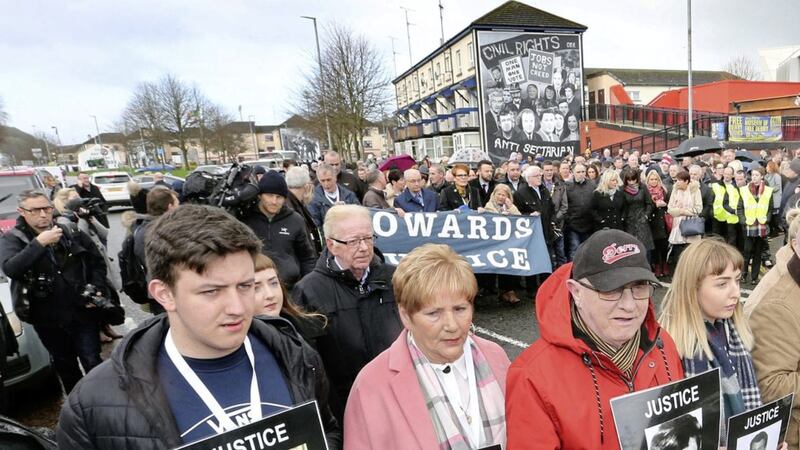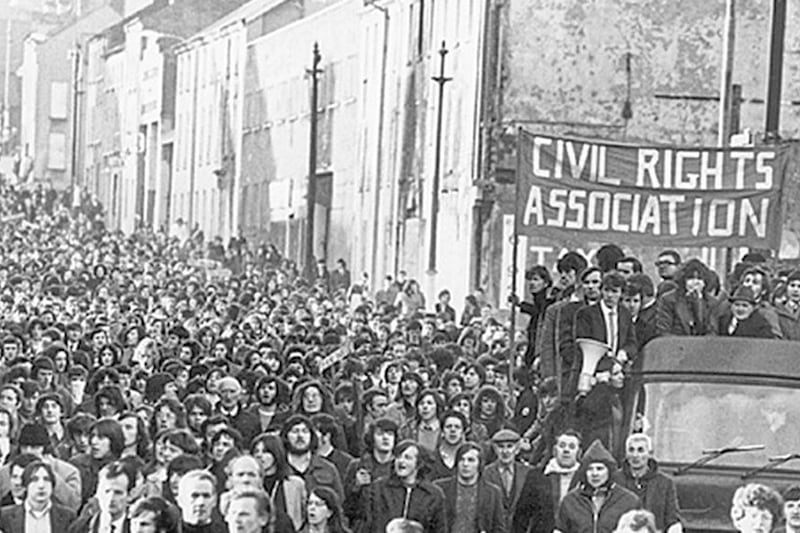IT is widely acknowledged, but worth repeating, that as the years go on the prospect of criminal prosecutions in legacy cases diminishes.
The Bloody Sunday families, following Lord Saville's damning findings, were among a small group who still held out hope that those responsible for the deaths of their loved ones decades ago would stand trial.
The PPS gave a detailed explanation yesterday for the decision to prosecute just one man, Soldier F, despite admissions of involvement in fatal shootings by former colleagues in the Parachute Regiment.
It's understandable that the Bloody Sunday families, knowing what admissions had previously been made, would have the expectation of prosecutions.
Read More
- Praise for Bloody Sunday families' dignity and determination
They've spent 47 years campaigning and any future trial of Soldier F means their long road still has a few miles left to walk.
But this decision will and should put pressure on both the British and Irish governments to fulfil their duty and deal with legacy in an orderly and fair fashion once and for all.
There will never be perfect mechanisms to deal with the past. The variety of views and expectations from victims are impossible to meet in a bespoke fashion.
However, there can be a uniform way that gives all victims equal access to truth recovery, pensions for the injured, inquests where none were held and adequate compensation to reflect loss.
A battle a day for justice, which is all some families know, is unfair, re-traumatising and denies people the right to live even the semblance of a normal life after loss.
Read More
- Bloody Sunday prosecution: Who is Soldier F?
- Bloody Sunday families: 'I could cry but I'm not going to cry'
Legacy will have to be dealt with. The current policy of running down the clock has not resulted in people moving on, but instead increased anger and perceptions of inequality.
And while the responsibility for implementing these mechanisms lies at the feet of the British government, there is also a responsibility on all those who work with victims to help manage expectations, when what they are told can be delivered is often very different from what is actually obtainable.
The families of those who died on Bloody Sunday quoted Nelson Mandela yesterday: "To deny people their human rights is to challenge their very humanity."
It remains a failure of a peace process that was lauded around the world as a model for conflict resolution that so many were denied their rights, so many were failed, so many left hurting - some publicly like the Bloody Sunday families and many more privately, victims who will have seen Thursday's decision as ending any hope of justice in the criminal sense.







